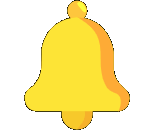CBSE syllabus for Class 6 Social Science: The first step to any exam preparation is to carefully go through the syllabus. The syllabus is an...

CBSE Class 6 Social Science Syllabus 2025
February 17, 2025
CBSE Class 6 is a crucial stage for students as they transition from the primary to the secondary level of education. The curriculum focuses on building a strong foundation in various subjects such as Mathematics, Science, Social Science, English, and Hindi. Students are also introduced to new subjects like Computer Science, Art, and Physical Education. The teaching methodology is designed to cater to the learning needs of students through hands-on activities, group discussions, and practical projects.
The CBSE Class 6 exams comprehensively test students’ understanding of the concepts learned throughout the year. The CBSE Board also encourages students to participate in various extracurricular activities like sports, music, dance, and debates to foster their overall development. The CBSE Class 6 syllabus is well-structured and covers various topics, providing students with a solid foundation in various subjects.
The Central Board of Secondary Education (CBSE) provides students with a standard-level education. All the schools affiliated with the CBSE Board must follow the NCERT curriculum and prepare for the exam. Class 6 CBSE exams are generally classified into three parts, the first term (quarterly), the second term (or half-yearly) and the final (annual) exam.
The exams are regulated by the Board but conducted by school authorities only. Therefore, students must be in touch with their school authorities to be familiar with the exam date and result date. The Class 6 CBSE final or the annual exams are generally conducted during March. The Board follows the NCERT syllabus for all the subjects.

The CBSE Class 6 exams are conducted for 1.5 hours or 90 minutes for each subject. The exam for each subject is conducted for 100 marks, whereas the passing marks may vary from 33% to 35%. The respective school authorities will only decide the exam’s passing marks. Every school has different rules for students who fail the Class 6 exam. However, the authorities usually analyse how many subjects students have failed and then decide whether they must be promoted to the next class.


The CBSE Class 6 syllabus is designed to introduce students to new topics in various subjects, including Mathematics, Science, Social Science, English, and Hindi. They also learn about computers, physical education and many other important subjects. The syllabus helps students prepare for the exam in a planned way. They learn about the concepts and topics they will be studying in the current academic year. The Class 6 CBSE syllabus helps students understand the concepts better and prepares them for the future, solidifying their fundamental knowledge for secondary education.
According to the New Education Policy (NEP), students will also have to study coding. The detailed subject-wise syllabus for CBSE Class 6 is given in the following tables:
There are a total of 16 chapters in CBSE Class 6 Science. The Science subject can be further divided into three sections: Physics, Chemistry and Biology.
| Science | ||
|---|---|---|
| Chapter 1 | Food: Where Does it Come From? | Biology |
| Chapter 2 | Components of Food | |
| Chapter 3 | Fiber to Fabric |
Chemistry |
| Chapter 4 | Sorting Materials into Groups | |
| Chapter 5 | Separation of Substances | |
| Chapter 6 | Changes Around Us | |
| Chapter 7 | Getting to Know Plants |
Biology |
| Chapter 8 | Body Movements | |
| Chapter 9 | The Living Organisms and Habitats | |
| Chapter 10 | Motion and Measurement of Distances |
Physics |
| Chapter 11 | Light, Shadows and Reflections | |
| Chapter 12 | Electricity and Circuits | |
| Chapter 13 | Fun With Magnets | |
| Chapter 14 | Water | Chemistry |
| Chapter 15 | Air Around Us | |
| Chapter 16 | Garbage In, Garbage Out | Biology |
The CBSE Class 6 Social Science is further classified into History, Geography and Political Science. The detailed syllabus of the same has been tabulated below:
| Social Science | ||
|---|---|---|
| History | Geography | Social and Political Life |
| What, Where, How, and When? | The Earth in the Solar System | Understanding Diversity |
| From Hunting-gathering to Growing Food | Globe: Latitudes and Longitudes | Diversity and Discrimination |
| In the Earliest Cities | Motions of the Earth | What is Government? |
| What Books and Burials Tell Us? | Maps | Key Elements of a Democratic Government |
| Kingdoms, Kings, and an Early Republic | Major Domains of the Earth | Panchayati Raj |
| New Questions and Ideas | Major Landforms of the Earth | Rural Administration |
| Ashoka the Emperor who Gave up War | Our Country- India | Urban Administration |
| Vital Villages, Thriving Towns | India – Climate, Vegetation, and Wildlife | Rural Livelihoods |
| Traders, Kings, and Pilgrims | Urban Livelihoods | |
| New Empires and Kingdoms | ||
| Buildings, Paintings, and Books | ||
The CBSE Class 6 Mathematics contains a total of 14 chapters. The detailed syllabus of 6th Class Mathematics is tabulated below:
| Mathematics | |
|---|---|
| Chapter 1 | Knowing Our Numbers |
| Chapter 2 | Whole Numbers |
| Chapter 3 | Playing With Numbers |
| Chapter 4 | Basic Geometrical Ideas |
| Chapter 5 | Understanding Elementary Shapes |
| Chapter 6 | Integers |
| Chapter 7 | Fractions |
| Chapter 8 | Decimals |
| Chapter 9 | Data Handling |
| Chapter 10 | Mensuration |
| Chapter 11 | Algebra |
| Chapter 12 | Ratio and Proportion |
| Chapter 13 | Symmetry |
| Chapter 14 | Practical Geometry |

Students in Class 6 need to focus on comprehensive learning. It will allow them to prepare for the exam efficiently. Following a proper study plan can have a great impact on scoring higher marks in the exam. Furthermore, students will also be able to stay ahead of their peers. In the below sections, we have provided important preparation tips and a detailed study plan to help students ace their exams.
If followed religiously throughout the academic year, preparation tips can help students relax before exams. Students can refer to the tips provided below to score good marks in CBSE Class 6 exams 2025:
A CBSE Class 6 student can follow the below detailed study plan to prepare for their exams:
Week 1:
Week 2-3:
Week 4-5:
Week 6-7:
Week 8-9:
Every student is different and has a different way of studying. Therefore, this study plan can be adjusted according to the individual student’s needs and pace, but it provides a good starting point for preparing for the CBSE Class 6 exams.

Below we have provided some frequently asked questions on the CBSE Class 6 exams 2025:
Q.1: What is the syllabus for CBSE Class 6?
Ans: The CBSE Class 6 curriculum includes topics from Science (Physics, Chemistry, and Biology), Mathematics, Social Science (History, Geography, and Social and Political Life), and languages such as English and Hindi, as well as any other regional language chosen by the student.
Q.2: What are the subjects in CBSE Class 6?
Ans: English, Hindi, Science, Social Science, and Mathematics are the subjects covered in CBSE Class 6. It can also contain regional languages.
Q.3: Where can I find videos to study the CBSE Class 6 topics?
Ans: Students can find 3D videos on Embibe to study the CBSE Class 6 topics.
Q.4: How do I download the latest CBSE Class 6 syllabus?
Ans: Students can find the latest CBSE Class 6 syllabus on Embibe.
Q.5: When is the CBSE Class 6 exam 2025?
Ans: The CBSE Class 6 exam 2025 date will be announced by the respective school authorities.

There are a number of schools that are affiliated with the CBSE Board. The CBSE Class 6 educational institutes are spread across the country and cater to the educational needs of students. These institutes follow the CBSE curriculum and provide students with quality education, fostering intellectual, physical, and social development. Students can access the detailed CBSE state-wise and region-wise schools here:
| Sl. No. | School Name | State |
|---|---|---|
| 1 | Eklavya Model Residential School | Madhya Pradesh |
| 2 | Eklavya Adarsh Awasiya Vidyalaya Narayanganj | Madhya Pradesh |
| 3 | Govt Eklavya Adarsh Awasiya Vidyalaya Ghughari | Madhya Pradesh |
| 4 | Indus World School | Madhya Pradesh |
| 5 | Murlidhar Kripa Vidhya Mandir | Madhya Pradesh |
| 6 | The Village Elementary Public School | Madhya Pradesh |
| 7 | MPS Azizbaug CBSE School | Maharashtra |
| 8 | Jankalyan Nagar MPS CBSE School | Maharashtra |
| 9 | MPS Hariyali Village CBSE School | Maharashtra |
| 10 | Poonam Nagar Mumbai Public School (CBSE), Andheri | Maharashtra |

Based on Continuous Comprehensive Evaluation (CCE), students are promoted from Class 6 to Class 7. After completing CBSE Class 6, students have several exams to take to enhance their education and test their skills in various subjects. Some of the exams that students can consider are: